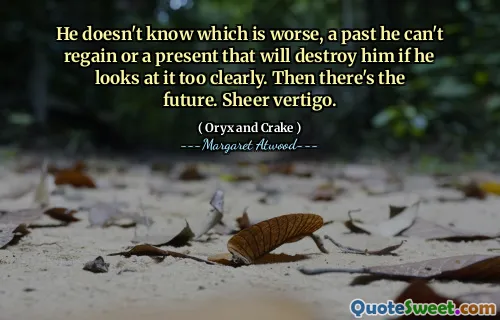-but love was undependable, it came and then it went; so it was good to have a money value, because then at least those who wanted to make a profit from you made sure you were fed enough and not damaged by too much. Also there were many who had neither love nor money value and having one of these things was better than having nothing.
In "Oryx and Crake" by Margaret Atwood, the narrative explores the complex relationship between love and economic value. Love is portrayed as unreliable, fluctuating between presence and absence. In contrast, the notion of monetary value provides a sense of security and sustenance. This idea suggests that while love can come and go without promise, having financial worth ensures that one is taken care of, highlighting the harsh realities of survival and the transactional nature of human relationships.
The text emphasizes a grim perspective on the human condition, indicating that even those without love or monetary value are at a disadvantage. It posits that possessing either one of these elements is preferable to having neither. This reflection illustrates the challenges individuals face in a society where emotional and economic stability are intertwined, prompting a critique of the values that govern human connections in a dystopian setting.






